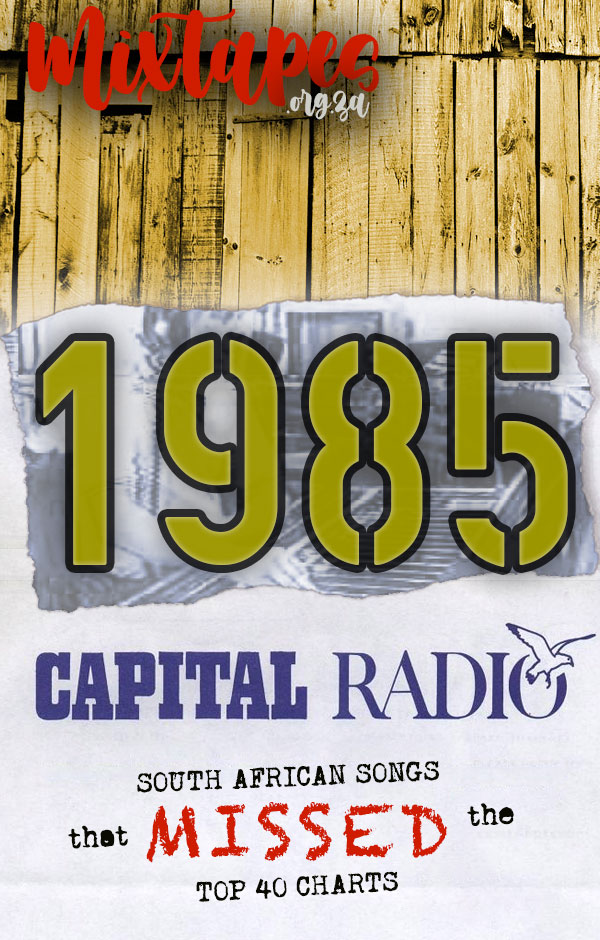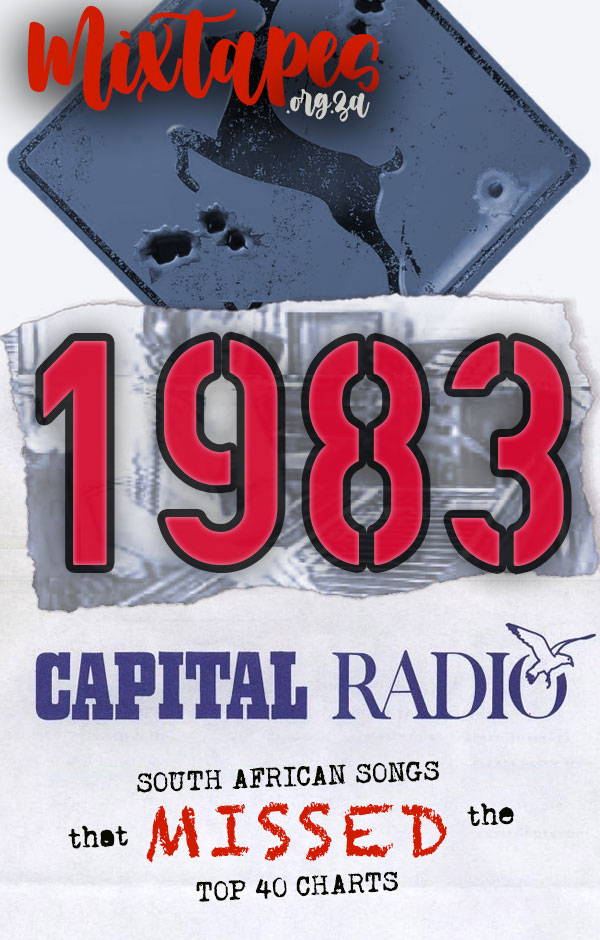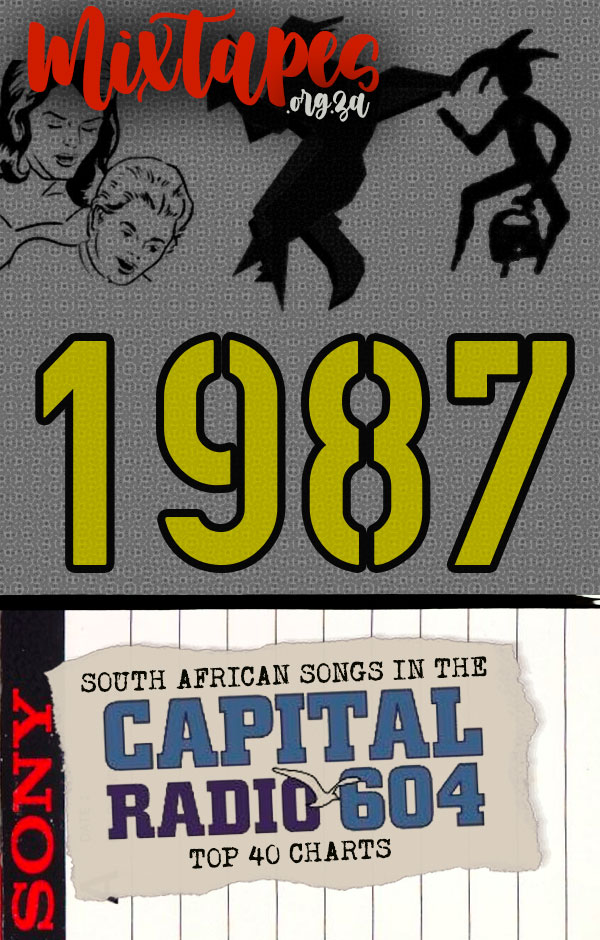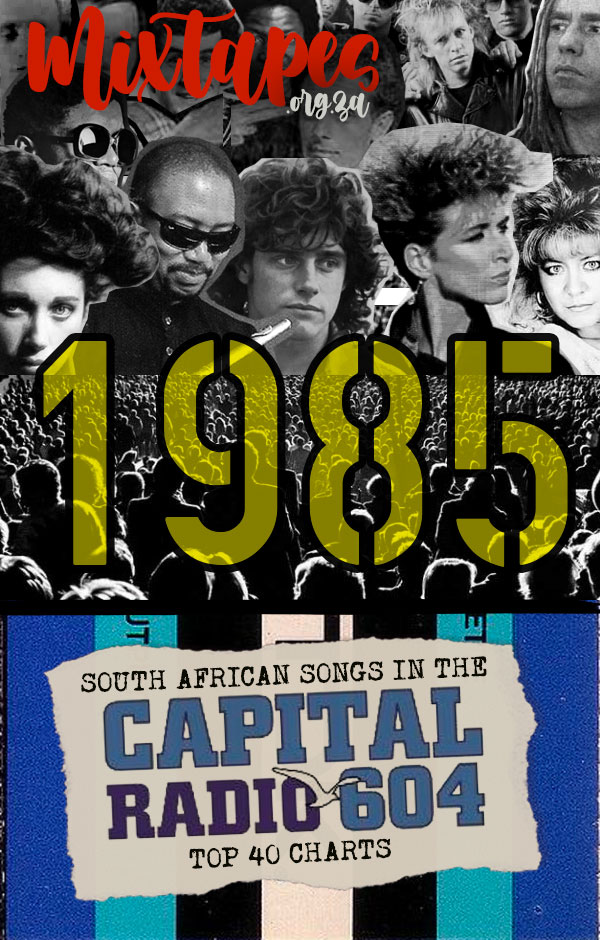
1985 saw a record number of 17 South African releases on the Capital Radio Top 40 Countdown. Yet there were several other songs which we think also should have charted. These included additional songs by musicians who did chart that year: Johnny Clegg’s “Gumba Gumba Jive”, Sipho Mabuse’s “Jive Soweto” and Tribe After Tribe’s “Life Of A Love Song”.
Several overseas musicians in exile released music in 1985 which was ignored or avoided by South African radio stations including Capital. These were District Six (with “Woza Wena”) , Kintone (with “Going Home”), the Malopoets (with “Intsizwa”) and Hugh Masekela (with “Lady”). These overseas releases involved several collaborations with overseas musicians: both District Six and Kintone comprised several overseas musicians while Masekela’s “Lady” was a cover of the well-known Fela Kuti track. Further, John Kongos wrote the theme tune for the British crime drama Cats Eyes and teamed up with British singer Louise Burton to record a vocal version of the theme (featured in this week’s playlist).
Meanwhile, Shifty Records was beginning to record an increasing volume of South African music which otherwise would probably have not been recorded. This week’s mixed tape includes several Shifty artists: The Cherry Faced Lurchers with their poignant “Shot Down”, the Kalahari Surfers (fronted by Tighthead Fourie) singing “Song For Magnus, a sinister cover of Nancy Sinatra’s “These Boots Were Made For Walking”, “International News” by National Wake (Off the 1985 A Naartjie In Our Sosatie compilation album) and Bernoldus Niemand singing a cover of the Radio Rats’ “Welcome To My Car”, which was specifically banned from airplay on the SABC.
There were also several township pop style songs: “Bongani” by Brenda And The Big Dudes, “Heartbeat” by Harari, “Jive Soweto” by Sipho Mabuse and “Skorokoro” – Lumumba and Condry Ziqubu. Zia ventured in that same direction with “Nobody Loves You” and to complete a wide range of South African sounds for 1985, Petit Cheval released the new wave influenced “Once In A Lifetime”.
Show Playlist + Poll–




